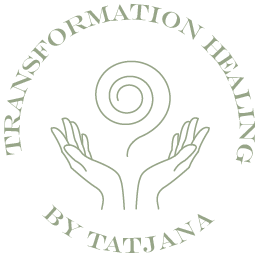You might not think that these two concepts go together, but the occurrence of depression as a result of spiritual awakening is more common than you might imagine, and as such, it is a very important topic worth discussing.
I will speak exclusively about the depression that arises as a phenomenon of spiritual awakening.
Although the state of depression experienced during spiritual awakening may appear similar to clinical depression, the causes and coping methods are not the same.
First, it is necessary to emphasize the distinction between depression as a clinical condition—which is not the subject of this article. Diagnosed depressive disorders differ in both intensity and duration. In cases of clinical depression, symptoms are not expressed through temporary daily mood swings, but are long-lasting, leading to a loss of interest in participating in life, changes in biorhythms, appetite, and the emergence of persistent violent and suicidal thoughts. In such cases, it is essential to seek professional medical help.
Spiritual awakening is literally a waking up from the previous way of living, a re-examination of everything we believed in and how we were thinking, and depression is a common consequence of this. A genuine awakening will not allow us to put on rose-colored glasses or move through life with a blindfold. Because of the collapse of the beliefs that previously guided us through life up to the moment before awakening began, this phenomenon is popularly referred to as the dark night of the soul.
CAUSES OF DEPRESSION IN SPIRITUAL AWAKENING
Spiritual awakening unfolds in stages. These stages can be imagined as periods in which we break through inner boundaries—boundaries that are the result of forgetting that we are consciousness and that we can connect with ourselves as consciousness.
When we bring more awareness into the present moment, we raise our inner vibration. But that doesn’t mean the pain automatically disappears. As we grow in awareness, it becomes easier to connect with how we feel, and therefore easier and more consciously to notice when we are experiencing discomfort.
Our being is more complex than what we currently perceive ourselves — as an individual with a personality. During spiritual awakening, there is a revealing of vibrations that lie behind everything that separates us from our true self, which is consciousness. These are the very vibrations that cause us such discomfort.
Suffering is not something we can avoid, nor are the feelings of confusion, depression, sadness, anxiety, regret, not belonging, or the urge to feel better—because all of these feelings are unbearable and place us in a deep state of discomfort…
When discomfort arises, the question is: what are our patterns for dealing with life’s discomfort? Do they lead us into compulsively soothing our discomfort through addictions, aggression, denial—or might we try to transform those patterns, as they are offered to us as a part of the process of spiritual awakening?
Awareness teaches us that every emotion is a part of us, a part of our current state. It teaches us that emotions are temporary, and that they are not something to be ignored, but rather a part of us that seeks expression. Spiritual awareness teaches us that our true nature is something much deeper within us than the emotions, which are always in some way surface-level, as they do not touch our true self—no matter how real they may feel in the moment.
Consciousness is something that wants to know itself more and more. By becoming aware of the parts of ourselves that bring discomfort, we gain the opportunity to influence the origin of these phenomena that come into the light of consciousness—by going into their depth, into their vibrations, and transforming them.
HOW TO BREAK FREE FROM DEPRESSION?
The heaviness we feel in the midst of the rising vibrations that cause depression can be almost unbearable, but it is essential to keep returning to the present moment and remind ourselves: I am still alive, I am still here, my existence has not changed, but it is my perspective that I have the ability to change.
IT IS ALSO HELPFUL TO GO DEEPER INTO THE BODY—to engage with the body, through physical activity, which pulls us out of the mind.
It is also worth remembering the following:
- That our current incarnation serves as a playground through which our soul learns
- Pain is a catalyst for growth
- To love oneself means to love all parts of oneself, regardless of what they are like
- It is the mind that limits us in understanding ourselves as consciousness and wants to return to the comfort of the known
- When we begin to awaken, there are forces that want to prevent it
Whenever we are in the process of spiritual awakening, we must remind ourselves day by day, moment by moment, to observe ourselves. Through this observation, we become aware of what is happening to us and what is arising from within us. This is awareness. If we learn to distinguish what is arising from within us—whether it comes from this personality or is influenced by the environment—from what we truly are, we will be able to center ourselves more effectively. In this context, centering means grounding ourselves in the reality of what we are—consciousness.
RECOGNISING INCARNATION AS LEARNING
Our life, just as it is, is the consequence of everything we have lived through in this and past lives, of the circumstances in which we grew up and that shaped us, but also of what we as a soul chose to learn before choosing this incarnation.
PAIN ACCELERATES GROWTH
When we take a step back, pain is just one of many emotions we can experience as human beings. Constant comfort does not motivate us to change. Even though we always resist pain, pain is a powerful catalyst for transformation—and that is what spiritual awakening brings into our life.
LOVING ONESELF AND ONE’S PARTS
Depressive states teach us how to love ourselves, and in that self-love, we do not pick and choose between the parts of ourselves we like more and those we don’t.
THE ROLE OF THE MIND
The mind and ego seek comfort and struggle to accept that depressive feelings are signs of spiritual awakening—and to understand how awakening can be a “good thing.” From the perspective of consciousness, the experience of depression is viewed very differently, and is accepted with more neutrality than when depression is viewed through the mind. The mind is inclined toward complaining and lamenting, and tends to spin in circles that are difficult to break out of.
ATTACKS
When we begin to awaken, in this time and on the planet we live on, there will be forces that seek to halt our spiritual growth—because through our spiritual growth, we cut off their source of energy and make quantum leaps through which we free ourselves personally, our ancestral lines, and the rest of the collective of the planet we inhabit.
It is useful to become aware of the existence of these external forces—but they gain power only in proportion to the power and attention we give them. While they should not be underestimated, more often than not, we ourselves are the ones who sabotage ourselves—from our own ego.
ENERGETIC WORK AS ASSISTANCE
When I observe the treatment of such states through energy healing, it comes down to constriction. All the intense spiritual work on oneself encourages expansion and the removal of vibrations underlying the themes that pull us down vibrationally. It’s as if we are admitting to ourselves that we are consciousness, yet from the mind and personality, we still resist it. These two opposing states create discomfort that then spreads throughout the body.
If we want to change this energetically, the proper approach is not through force, but through love, compassion, and deep patience.
PERSONAL EXPERIENCES
From personal experience, I can say that it’s not always easy to recognize inner progress when, externally—in a material sense—things seem unchanged. There were times when I worked a lot on myself—meditation, introspective work, healing—and expected that this would automatically manifest through major changes in the outer world.
But more often than not, because of those expectations, I faced disappointment and feelings of depression. I would forget that we live on a planet where the level of collective consciousness is still low, and that inner changes require patience in order to mature outwardly.
I have a close friend who has been working on his growth for years, but he often gets discouraged because he compares himself to others who are also involved in some kind of spiritual work. His inner development is strong, but when he doesn’t see concrete changes in his daily life—in work, relationships, or achievements—he easily loses heart. This need to “see the result” externally is deeply ingrained in us, but it’s not always a measure of real progress.
CONCLUSION
Spiritual awakening is not a linear or easy process. It is a path that requires the courage to look into the deepest parts of ourselves, to accept the darkness just as much as the light.
The depression that appears along this path is not proof that we are doing something wrong—it is proof that something in us is dying: the old, the familiar, that which can no longer carry us forward.
On this journey, it is important to remember that inner shifts do not have to be immediately validated by outer signs. Just like a seed in the darkness of the earth preparing to break into the light—even if it looks like nothing is happening on the surface, an enormous life movement is occurring inside.
Let us remind ourselves:
Don’t compare your process to someone else’s.
Don’t seek proof of your worth through external results.
Instead, be gentle with yourself.
Love yourself, even while you are suffering.
Allow yourself to move slowly, to feel uncertain, to sit in moments of darkness.
Because it is through these very moments that we open to our consciousness.
And consciousness does not come as a reward or a goal—but as a step on our journey.

